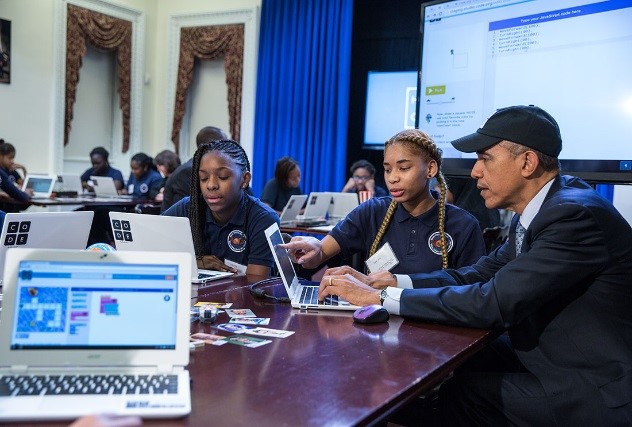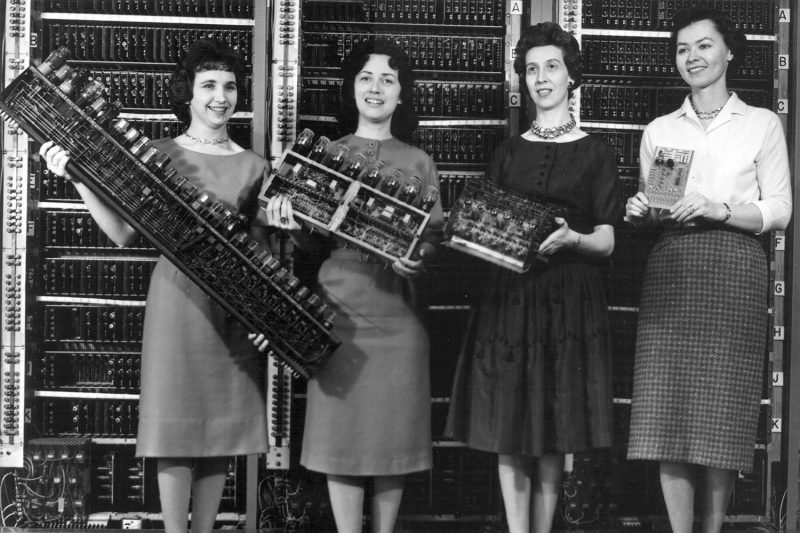Once Respected, Women Now Face Discrimination in Ed & Tech Cos
A recent story in The New York Times Magazine described the history of women and computers from 1950 to the ’70s and the outsized impact they had in developing software as government employees. The story also told the sad tale of how men came to marginalize women, discriminate against them and sexually harass them while benefiting from greater opportunities in the 1980s. As the Times story relates:
“If we want to pinpoint a moment when women began to be forced out of programming, we can look at one year: 1984. A decade earlier, a study revealed that the numbers of men and women who expressed an interest in coding as a career were equal. Men were more likely to enroll in computer-science programs, but women’s participation rose steadily and rapidly through the late ’70s until, by the 1983-84 academic year, 37.1 percent of all students graduating with degrees in computer and information sciences were women. In only one decade, their participation rate more than doubled…But then things went into reverse. From 1984 onward, the percentage dropped; by the time 2010 rolled around, it had been cut in half. Only 17.6 percent of the students graduating from computer-science and information-science programs were women.”
The “why” takes several pages to explain, but it boils down to three factors: young men had more access to personal computers than women and took advantage of it; men caused girls to become discouraged from enrolling in classes where they were ignored by male professors; and a male-dominated culture alienated women in colleges and companies.
“In 2014, an informal analysis by a tech entrepreneur and former academic named Kieran Snyder of 248 corporate performance reviews for tech engineers determined that women were considerably more likely than men to receive reviews with negative feedback; men were far more likely to get reviews that had only constructive feedback, with no negative material. In a 2016 experiment conducted by the tech recruiting firm Speak With a Geek, 5,000 résumés with identical information were submitted to firms. When identifying details were removed from the résumés, 54 percent of the women received interview offers; when gendered names and other biographical information were given, only 5 percent of them did.”
Times story isn’t the first to describe the sexism in the tech business, but it outlines the stark difference between women’s current position in computer development and how far they have fallen as tech mavericks, especially because venture capitalists are less likely to fund their start-ups than those proposed by men.

President Obama visits students during their “Hour of Coding” period. (U.S. Department of Education)
Last year during women’s history month, several tech industry conferences and publications discussed the phenomenon of how women are pushed out of well-paying positions once men are interested. The founding of several computer companies by men, such as Microsoft, Apple, Amazon and Google meant the development of a “bro” culture in which women were treated as sex objects rather than equals in the field.
A June 2018 report from the National Academies of Sciences, Engineering and Medicine found that universities and colleges still have a significant problem with sexual harassment. That attitude developed during academic years continues into the workplace. It noted these facts:
- Organizational climate is the single most important factor in determining whether sexual harassment is likely to happen in a work setting.
- Gender harassment is by far the most common form of sexual harassment.
- When women are sexually harassed, their least common response is to formally report the experience.
- Sexual harassment undermines women’s professional and educational attainment and mental and physical health.
- Sexual harassment training has not been demonstrated to change behavior.
The best solution is to educate on policies, enforce them and create an environment where harassment isn’t tolerated, according to the report.
The lack of women in tech companies is largely due to negative attitudes toward them, according to Melonee Wise, CEO of a warehouse robotics company, Fetch Robotics, speaking on a panel entitled “Women in Robotics: A Fine Balance” at SXSW in Austin, TX in March 2018 and quoted by VentureBeat.
“Women tend to leave engineering because they don’t want to deal with assholes,” Wise said. “Actually, at Fetch Robotics, we have a strong no-asshole policy because engineering douchebaggery is actually the biggest thing to hurt engineering since the dawn of time, and this isn’t just particular to women who leave the field, it’s actually particular to all people who have no tolerance for working with assholes and douchebags.”
Wise, one of three women on the panel, was the only one born in the United States. Women in other countries face less discrimination in their countries, according to the panelists, though in the United States they are discriminated against for their sex as well as their nationalities.
On the positive side, some women are proactively working to encourage young women to enter computer fields. For instance, in a story in Fast Company, Carolie Nau, the creative director & co-founder of an incubator called Skylab Boston, taught homeless women how to code and discovered they caught on right away. She and her co-founder Brigitte Wallace bought a house for a program to transition black homeless women with potential into housing and teach them coding. [G]Code House will be home to 14 women. The effort comes at a time when the share of black women tech professionals has fallen by 13%.








Leave A Comment